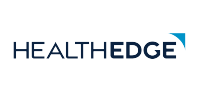- Home
- What we do
- Market
- Payers
- Payer Core
PAYER CORE
Revolutionizing Payer operations with AI and Automation
Driving efficiency, innovation, and operational excellence in core systems and business processes
--.webp?width=800&height=625&name=Payer-Core-(for-Health-Plans)--.webp)
ARTICLE
ICHRA vs. Traditional group health plans - Redefining employee healthcare with flexibility and control
REPORT
CitiusTech Recognized as a Major Contender in Healthcare Data & Analytics Peak Matrix® 2023 Assessment
NEWS
HealthEdge Announces Strategic Partnership with CitiusTech to Enhance Offerings to Health Plans
PAYER CORE
Modernizing core applications ecosystem and processes with digital technology
Modernize operational processes such as claims, enrollment, billing, and customer service to enhance care quality, member satisfaction, and regulatory compliance. Leverage CitiusTech’s next-generation technologies, solutions, products, and expertise to reduce Total Cost of Ownership (TCO) and improve operational efficiencies. Deploy automation, GenAI capabilities, and best-in-class 3rd party platforms to become a digital-first connected enterprise.
Advisory
or Consulting
Product
implementation
Operations
optimization
Legacy modernization and migration
CONNECT WITH US
Elevate business efficiency and customer satisfaction with our Payer Core Solutions.

features
Transforming end-to-end core operations
Seamless implementation
Implement a core administrative platform that seamlessly aligns with business functions, delivering operational benefits in cost efficiency and quality improvement.
Payer core engineering
Avail engineering services across customization, data integration, and/or integration with upstream and downstream applications.
Boost agility and productivity
Leverage our center of excellence coupled with accelerators for configuration, testing, and automation to increase speed-to-market and productivity.
SUCCESS STORIES
Solving some of the greatest challenges in Healthcare

Case Study
PARTNERS
Creating an ecosystem of limitless possibilities



SERVICES
Shaping Healthcare possibilities with our expertise
%20(3).webp)




Digital Engineering
Reshaping Healthcare with cutting-edge technology solutions for better patient care

Data Engineering & Data on Cloud
Making Healthcare data the backbone of your organization's strategy












.png?width=1920&height=1080&name=Consulting2_Menu_1%20(1).png)









